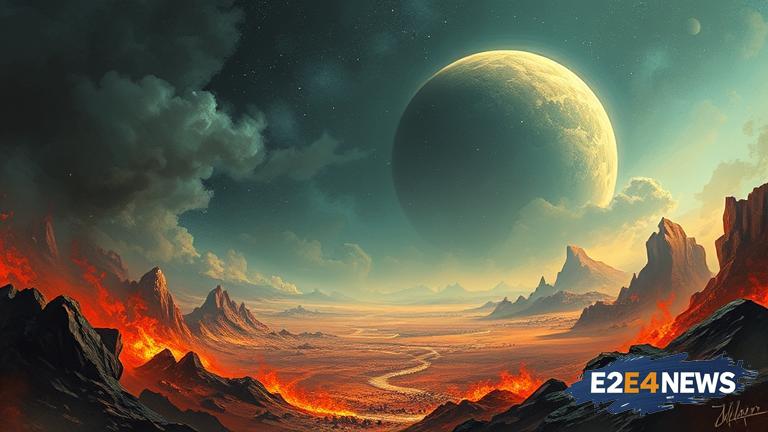The concept of Earth being a hellish planet is a notion that has sparked intense debate and discussion. With the ever-increasing concerns about climate change, environmental degradation, and social injustices, it is imperative to examine the validity of this claim. The Earth, often regarded as a paradise, is facing numerous challenges that threaten its very existence. The alarming rate of deforestation, pollution, and species extinction has led to a significant decline in the planet’s biodiversity. Furthermore, the effects of climate change, such as rising temperatures, melting ice caps, and extreme weather events, are having a devastating impact on ecosystems and human societies. The social and economic disparities that exist globally have created a hellish reality for many individuals, with poverty, inequality, and lack of access to basic necessities being a harsh reality. The human condition, marked by conflict, violence, and discrimination, has led to a breakdown in social cohesion and a sense of community. The rise of nationalism, xenophobia, and racism has created a toxic environment, where marginalized groups are often subjected to hellish treatment. The economic systems that govern our world, prioritizing profit over people and the planet, have created a hellish cycle of consumption and exploitation. The consequences of these actions are far-reaching, with the most vulnerable members of society bearing the brunt of the impact. The Earth’s natural resources are being depleted at an alarming rate, with the pursuit of economic growth and development taking precedence over sustainability and environmental protection. The health of the planet is inextricably linked to the health of its inhabitants, and the current state of the Earth is a stark reminder of the need for urgent action. The clock is ticking, and the window for making significant changes to mitigate the effects of climate change and environmental degradation is rapidly closing. The responsibility for creating a hellish planet lies squarely on the shoulders of human beings, and it is imperative that we take collective action to address these issues. This requires a fundamental shift in our values, priorities, and behaviors, recognizing the intrinsic value of the natural world and the need to protect it for future generations. The fight against climate change, environmental degradation, and social injustices is a collective one, requiring the efforts of individuals, communities, organizations, and governments. The power to create a better world lies within us, and it is our responsibility to harness this power to create a more just, equitable, and sustainable planet. The Earth is not inherently a hellish planet, but rather a planet that has been made hellish by human actions. It is time for us to reclaim our planet, to recognize its inherent value, and to work towards creating a world that is just, equitable, and sustainable for all. The journey ahead will be challenging, but with collective action, determination, and a commitment to creating a better world, we can overcome the obstacles and create a brighter future. The time for change is now, and it is our responsibility to seize this moment and work towards creating a world that is truly a paradise, not a hellish planet. The fate of the Earth and its inhabitants hangs in the balance, and it is our actions that will determine the course of history. We must choose to act, to make a difference, and to create a world that is worthy of our highest aspirations. The Earth is a planet of immense beauty, diversity, and wonder, and it is our responsibility to protect it, to preserve it, and to pass it on to future generations in a better state than we found it. The clock is ticking, and the time for action is now.
